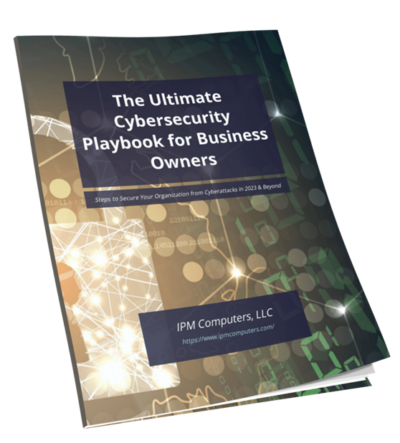Cybersecurity for healthcare providers is central in protecting sensitive data. With the increasing digitization of information, this sector has become a prime target for cybercriminals, making Wilmington managed IT a vital piece to addressing complex operational demands.
Key challenges include:
- Protecting patient health information (PHI) and client data from breaches.
- Addressing the vulnerabilities associated with handling sensitive data.
- Maintaining compliance with stringent regulations such as HIPAA and GDPR.
Compliance maintains legal adherence and builds trust with clients and patients. Failure to implement strong cybersecurity measures can result in severe consequences, including large fines and damage to reputation. As cyber threats continue to grow and adapt, healthcare providers need to prioritize cybersecurity in Wilmington to maintain client trust and business integrity.
Assessing Cybersecurity Needs in Healthcare and Legal Firms
Cybersecurity strategies must align with the unique data protection requirements of healthcare providers. These sectors manage sensitive information, making them prime targets for cybercriminals.
Key Considerations:
- Unique Data Protection Requirements: Healthcare providers safeguard PHI, which requires tailored approaches to data security.
- High-Value Targets: The sensitive nature of the data stored makes this industry particularly attractive to cybercriminals. Breaches can lead to significant financial loss and reputational damage.
- Necessity of a Robust Cybersecurity Strategy: A comprehensive cybersecurity strategy is imperative. Regular risk assessments help identify vulnerabilities and so protective measures are effectively implemented.
Navigating Cybersecurity Regulations
Healthcare practices must adhere to several critical regulations that shape their cybersecurity framework. Depending on jurisdiction, these can include:
- HIPAA (Health Insurance Portability and Accountability Act): Enforces strict standards for PHI in the U.S.
- GDPR (General Data Protection Regulation): Governs personal data protection for individuals in the European Union, establishing comprehensive rights for data subjects.
- CCPA (California Consumer Privacy Act): Enhances privacy rights and consumer protection for residents of California, focusing on personal information handling.
- SHIELD Act (Stop Hacks and Improve Electronic Data Security Act): New York’s law mandating reasonable safeguards to protect private information.
Compliance with these regulations requires robust data protection measures, including strict access controls, regular audits, and employee training. Failing to meet these standards can lead to severe penalties, including hefty fines, legal action, and reputational damage. Understanding these regulations is integral for maintaining trust in sensitive data management.
Identifying Common Cyber Threats
Cyber threats targeting the healthcare industry are becoming more complex and diverse. It’s important to know these threats to defend against them effectively. Here are some key types of cyberattacks to be aware of:
Types of Cyberattacks
- Ransomware Attacks: In this type of attack, hackers encrypt sensitive data and demand payment in exchange for the decryption key.
- Phishing: Attackers use deceptive emails to trick employees into revealing confidential information or clicking on malicious links.
- Social Engineering: Manipulative tactics are employed to exploit human psychology and gain unauthorized access to systems.
There are also specific vulnerabilities that arise from how sensitive data is handled:
Specific Vulnerabilities in Handling Sensitive Data
Inadequate training on recognizing phishing attempts increases the likelihood of falling victim to such attacks.
- Legacy systems often lack updated security measures, making them attractive targets for hackers.
- Failure to implement strict access controls can result in unauthorized exposure of sensitive data.
Developing Incident Response Plans
An incident response plan (IRP) is integral for healthcare providers. It outlines procedures to follow during a data breach or cyber incident, assuring swift action to mitigate damage. Key steps include:
- Identify the breach: Quickly assess the scale and nature of the incident.
- Containment: Isolate affected systems to prevent further data loss.
- Eradication: Remove malware or threats from systems.
- Recovery: Restore systems and data from secure backups.
- Communication: Inform affected clients and stakeholders transparently.
Incorporating data breach insurance into your cybersecurity strategy can significantly reduce financial losses. This insurance often covers costs associated with:
- Legal fees
- Public relations efforts
- Notification expenses for affected individuals
Having an IRP protects sensitive information and demonstrates accountability to clients and regulatory bodies.
Implementing Best Practices for Data Protection
Securing sensitive data requires a multi-faceted approach. Fundamental practices include:
- Implementing Encryption: Utilize encryption methods for emails and storage solutions, so even if data is intercepted, it remains unreadable without the proper decryption key.
- Establishing Access Controls: Enforce strict access control measures to limit data access to authorized personnel only. Techniques such as role-based access control (RBAC) can significantly reduce the risk of unauthorized data exposure.
- Training Employees: Invest in training programs focused on strong password policies. Educate employees on creating complex passwords and using password management tools. Regular reminders about changing passwords can further reinforce these practices.
Integrating these strategies creates a robust framework to protect sensitive information from cyber threats while maintaining compliance with industry regulations.
Securing IT Infrastructure in Healthcare
A strong IT infrastructure is vital for safeguarding sensitive data in the healthcare industry. Implementing regular updates is a foundational step to maintain security. Outdated software can introduce vulnerabilities, making systems susceptible to attacks.
Key strategies include:
- Utilizing firewalls: Firewalls act as barriers between trusted internal networks and untrusted external networks. They monitor and control incoming and outgoing network traffic based on predetermined security rules.
- Antivirus software: This software detects, prevents, and removes malicious software. Regularly updating antivirus solutions empowers firms to defend against the latest threats.
Incorporating IT audits helps organizations assess their current security posture, identify weaknesses, and enhance network security. Attention to mobile security is also important given the rise of remote work and the need to protect data accessed through mobile devices.
Engaging with Cybersecurity Experts
Partnering with cybersecurity professionals is vital for healthcare providers seeking advanced protection and monitoring services. The benefits include:
- Expertise: Access to knowledgeable professionals who stay updated on the latest threats and mitigation techniques.
- Proactive Monitoring: Continuous surveillance of systems to detect anomalies before they escalate into serious breaches.
- Incident Response: Immediate assistance in the event of a cyber incident, ensuring rapid recovery and minimal downtime.
Assessing the security posture of third-party vendors becomes of the essence. Many firms rely on external partners for various services, making it imperative to evaluate their security practices. This includes:
- Security Assessments: Regularly reviewing vendor protocols to maintain compliance with industry standards.
- Risk Management: Identifying potential vulnerabilities that could be exploited through third-party access.
Emphasizing Data Security & Compliance Priorities
The importance of cybersecurity for healthcare providers can’t be overstated. Protecting sensitive data is not just a regulatory requirement; it’s an ethical obligation.
Prioritize these data security strategies:
- Implement compliance measures
- Regular Audits: Conduct routine audits to verify compliance and identify any gaps in your data security practices.
- Data Encryption: Encrypt sensitive data both in transit and at rest to prevent unauthorized access.
- Invest in employee training
- Incident Response Training: Train staff on how to respond effectively in the event of a cyber incident.
- Access Control Policies: Employees should understand the importance of secure access controls, such as strong password practices and multi-factor authentication (MFA), to protect sensitive information.
Taking proactive steps maintains the integrity of client information and builds trust within your organization. Make data security and compliance a top priority today to safeguard your organization’s future.
Frequently Asked Questions About IT Security
Why is cybersecurity important for the healthcare industry?
Cybersecurity is vital for healthcare providers because they handle sensitive data, including patient health information (PHI) and personal data. This sector is a high-value target for cybercriminals, making robust cybersecurity measures paramount to protect against data breaches and maintains compliance with regulations like HIPAA and GDPR.
What are the unique cybersecurity needs of healthcare providers?
Healthcare providers have unique cybersecurity needs due to the sensitive nature of the data they manage. They require tailored cybersecurity strategies that include risk assessments, strong access controls, and employee training on data protection practices to safeguard client information effectively.
What major regulations impact cybersecurity in the healthcare sector?
The major regulations impacting this sector include HIPAA (Health Insurance Portability and Accountability Act), GDPR (General Data Protection Regulation), CCPA (California Consumer Privacy Act), and the SHIELD Act. Compliance with these regulations is requisite for protecting patient health information and avoiding severe consequences for non-compliance, which is why many organizations seek guidance when it comes to Wilmington IT compliance.
What types of cyber threats do healthcare organizations face?
Healthcare providers face various cyber threats, including ransomware attacks, phishing schemes, and social engineering tactics. These attacks exploit specific vulnerabilities related to sensitive data handling, making it vital for organizations to stay vigilant against potential threats.
How can providers develop an effective incident response plan (IRP)?
To develop an effective incident response plan (IRP), firms should outline clear steps to take during a data breach or cyber incident, so all employees are trained in their roles. Additionally, securing data breach insurance can help mitigate financial losses resulting from such incidents.
What best practices should be implemented for data protection in this sector?
Best practices for data protection in the healthcare sector include implementing encryption methods for emails and storage solutions, establishing strict access controls to safeguard sensitive information, and training employees on strong password management practices to minimize security risks.





